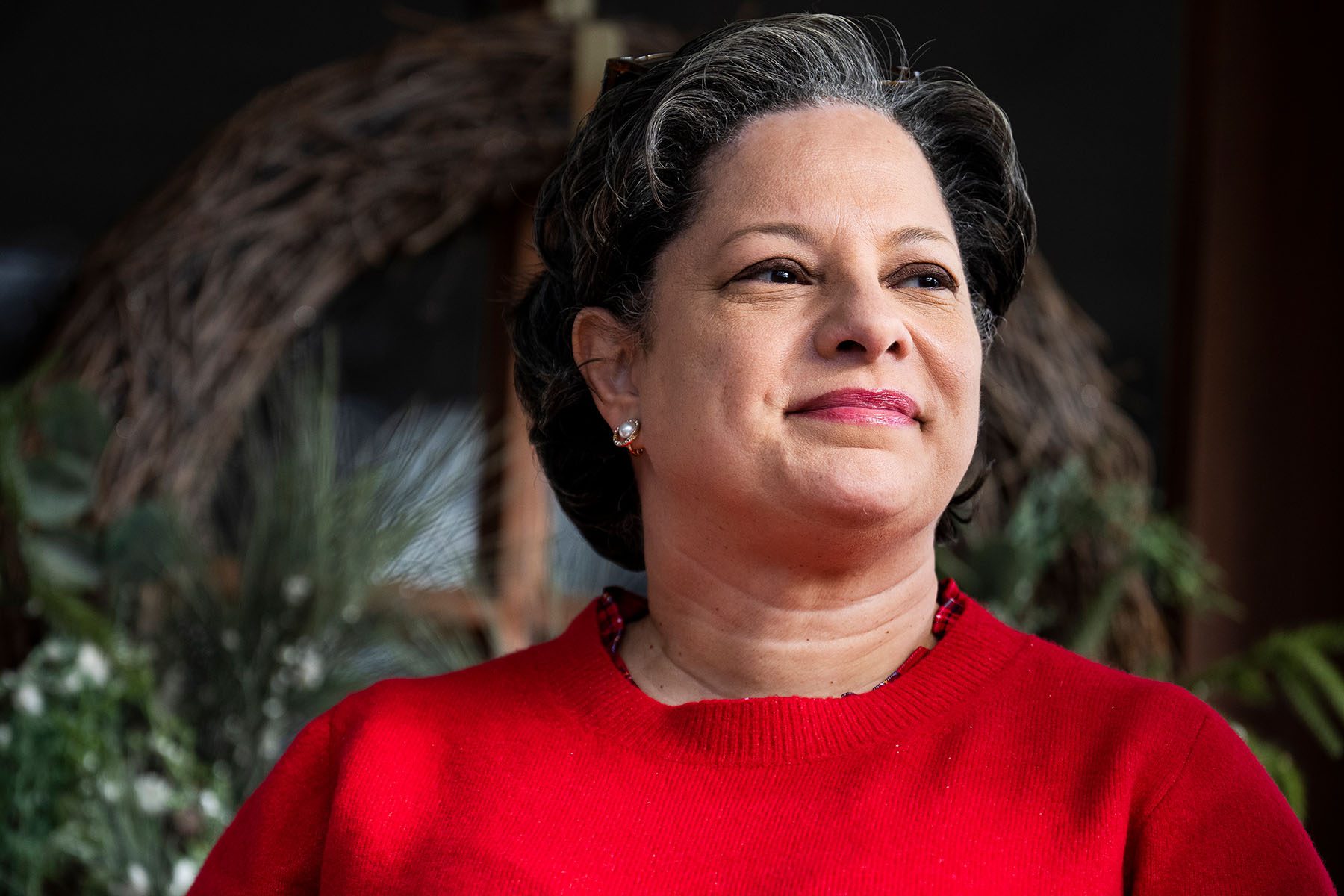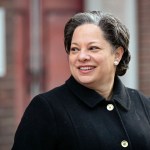Jennifer McClellan, a veteran state legislator, could soon become the first Black woman to represent Virginia in the U.S. House in what would be a stunning first for a district that was home to the capital of the Confederacy.
McClellan on Thursday handily defeated three opponents in the Democratic primary for the seat of the late Rep. Don McEachin, who died in November. McClellan is set to face Republican Leon Benjamin in a February 21 special election for a district that favors Democrats.
McClellan would join 27 other Black women House members, many of whom have already extended their support to the candidate. In a virtual call with McClellan supporters to drum up turnout during the hell-for-leather primary for the seat, about a dozen women from the Congressional Black Caucus appeared on the screen with eager endorsements.
Just 47 Black women have ever served in the House, representing 21 states. In the next Congress, just 18 states will have a Black woman in their delegations. Virginia would make 19.
McClellan, 49, has been in the Virginia legislature since 2006, establishing a reputation for being a measured negotiator and a leading voice on abortion rights, voting rights, public education and renewable energy. Last year, she ran unsuccessfully in the state’s Democratic primary for governor, vying to become the first woman in the state’s highest office.
In an interview with The 19th, McClellan said the U.S. House seat presents an opportunity to do “more good for more people.”
“I learned very quickly that everyone’s political views and how they vote and how they approach issues is shaped by their life experiences and what they know. As a Black woman, I bring a whole new perspective that has not had a voice in the Virginia delegation,” McClellan said.
In 2010, McClellan became the first Virginia House delegate to serve during a legislative session while pregnant. She soon became a prominent voice against Republican proposals to restrict abortions. In 2020, she sponsored successful legislation that rolled back a law that required people seeking abortions to undergo ultrasounds at least 24 hours before the procedure.
“I had a perspective that most people on that floor did not have about how it would impact somebody who had a missed miscarriage or would impact somebody who was hemorrhaging,” she said. She expects to continue to be a voice for reproductive rights at the federal level.
One of McClellan’s strong supporters is the former Rep. Leslie Byrne, who in 1992 became the first woman to represent Virginia in Congress. While in the House, Byrne voted for the passage of the Family and Medical Leave Act in 1993, which guarantees 12 weeks of unpaid leave for many workers facing medical or family caretaking needs.
“The men who voted for it thought it was good policy. I don’t think they knew the gravity of how this would change a lot of women’s lives,” Byrne said, speaking to the power of representation in the House. Guaranteeing that some of that leave is paid is a key priority for the Biden White House. McClellan is hoping to lend her voice to the issue after helping enact a paid family leave program in Virginia.
McClellan will head into the special election as the favorite to win the seat. Her Republican opponent, Benjamin, was twice defeated by McEachin, most recently last month by a 30-point margin. Benjamin is running to stop inflation, to “protect and restore your God-given constitutional rights” and close the country’s southern border.
If McClellan wins in February, Democrats will be tasked with scheduling a special election to fill her seat in the Virginia Senate, where they have a slim 21-19 majority. Republicans control the state House and the governorship, throwing into question Democrats’ ability to push back on GOP proposals at least temporarily.
Longtime Virginia state Sen. Mamie Locke, one of the highest-ranking Democrats in that chamber, said McClellan’s election to Congress would be “poetic justice.” She would represent Richmond, which just recently took down its Confederate monuments. The 4th Congressional District also elected Virginia’s first Black congressman more than 130 years ago.
“One would think that given all that we thought that we had accomplished as a consequence of the civil rights movement, the Black Power movement, that we would not still be having these firsts,” she said. “I think it’s poetic justice that Sen. McClellan would be the first African-American woman to go to Congress from this state, and that she would represent what was the former capital of the Confederacy.”
Rep. Katherine Clark, who will be the third highest-ranking Democrat in the next Congress when the party moves into the minority, said McClellan’s election would be “historic.”
“Jennifer McClellan has spent her career in public service fighting for the people of Virginia and for a better future. She’s not afraid to stand up and speak out, from reproductive justice to voting rights,” Clark said. “With her voice, we will be a stronger Caucus, a more representative Congress, and better advocates for working families.”
During a Monday gathering with supporters at a dilapidated train station in Ettrick, Virginia, McClellan said the opportunity to run for the seat came at the loss of her longtime mentor, McEachin. Renovating the station that serves the largely Black community was a goal of McEachin’s that McClellan promised to sponsor if elected. McClellan, who was born at a now-shuttered hospital just a few miles away, was “welcomed home” by a group of supporters with placards — nearly all Black women.
As a newborn, she was brought home to the dormitories of Virginia State University a few minutes from the station, where her dad was a professor and civil rights activist. Her mom, who has provided inspiration for McClellan’s work to improve working conditions for domestic workers in Virginia, sat among the group in Ettrick.
“Every woman on my mom’s side was a domestic worker,” McClellan said. “I knew that most worker rights that people take for granted, domestic workers didn’t have — like minimum wage and wage theft protections, and anti-discrimination laws. And so I could talk about it in a way that a lot of my colleagues could not.
“That work still needs to be done on the federal level.”







